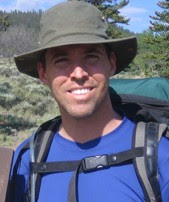Sunday, April 13
Recap:
Pastor Lyon started on Sunday with several interesting scriptures that all seemed point in the same direction - whether in the Old or New Testaments - God "has His heart fixed on the oppressed" and it is the job of God's people to represent them, care for them, and ensure that they are treated fairly. Then, he balanced this position with one scripture passage - Christians are to respect and obey the government that God has placed above them (with the caveat that we can disobey when a person like Hitler is capturing our neighbors and sending them off to death camps).
Jim then proceeded to walk a very fine line - in my view - between caring for the oppressed and obeying the government in power. While I generally agree with him, I would like to point out a slightly different view - perhaps, walking the other side of that very fine line.
But first, a few observations:
1. The preponderance of the scriptures presented on Sunday take a strong view of protecting aliens in the land.
2. The kind of government that exists today didn't exist in ancient Israel. The republics of Rome and Greece were around in Paul's time (not in Moses'), but these representative governments generally represented only the intellectual elite or the landowner. Many still had autocratic Kings with nearly unlimited power. The kind of representative government we have in the US today, where input that the average citizen can actually change laws was unheard of in ancient times.
3. History shows that "ethnic removal" has often had very dire consequences. Though I am not an advocate of "slippery slope" arguments, Hitler did start out this way.
4. The Church in America has often engaged in both civil disobedience and civil discontent when it comes to oppressed and/or under-represented groups (think fetuses, slaves, minorities, women, etc.).
5.One of the main reasons Christians in the USA go into politics is to make changes that they deem important. Indeed, they are often motivated by their faith to make a difference in the world through politics.
Therefore, I would walk a slightly different side of the line:
1. As Christians, we should do everything within the law to advocate for, protect, and serve any socially or economically oppressed group - particularly aliens (since they are specifically mentioned in scripture).
2. Further, because it is within our power to change government policy, we should do everything we can to effect that change. Protecting the person who has no legal status should be a cornerstone of our compassionate response to the world of people around us. Otherwise, why argue for women's rights in India? Doesn't their government endorse the practices of oppression and injustice for women, at least tacitly?
3. As Jim adeptly pointed out - we cannot simply remove these people from our midst. We need their participation in our economy to keep it moving. Therefore, it behooves us to facilitate their transition to legal status within our country.
In the end, it was an odd topic for the beginning of the "Go ahead" series. But one that the church must face. Will we rise in compassion and reach out to the people around us? As Jim says, will we take the time to listen and learn each story? Hear each heart cry? Understand the reasons for immigration, the desperate longing for family and home?
As we connect with these displaced and dispossessed people, we will grow in understanding of their plight. Only then, can we really serve them as God has called us to do.
Monday, April 14, 2008
Subscribe to:
Post Comments (Atom)

1 comment:
I thought the sermon was thought-provoking and definitely challenging. However, it was clear to me that this is a relatively new topic to Pastor Lyon, as evidenced by his repeated comments on how "odd" this question is (an opinion with which I disagree, considering how many illegal immigrants there already *are* in this state), as well as by his naive (in my opinion) view on what a Christian must do when an illegal immigrant is placed in one's life. Ask the pastors of the Southwest ... there's no way you can bring them all into the law! Our legal system is broken down where that is concerned!
Instead, I think Christians should strive to care for the spiritual and physical needs of these people--just like we would care for the needs of, for example, homeless drug addicts (they are breaking the law, yet we give them shelter and food and medical aid and THE GOSPEL).
Of course, I realize that Pastor Lyon had little time (a week) to prepare his answer, and perhaps he will continue to ponder this subject and formulate more practical notions on what the Christian response should be. I really hope that this question will wake people up to a very real issue that the Church faces today. I know too many Christians who are placing the U.S. government above the Kingdom of God, particularly where this issue is concerned.
Post a Comment